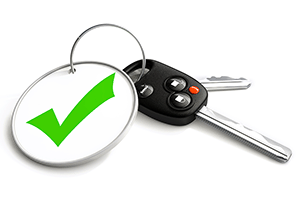NC Vehicle Title Search
If you're in North Carolina and need to perform a vehicle title search, you're in the right place. This guide will walk you through the process of running a title search, explain what information is included on a vehicle title, and provide answers to frequently asked questions about NC vehicle titles.
What Information is Included on a NC Vehicle Title?
A vehicle title is a legal document in North Carolina that proves ownership of that vehicle. If the vehicle was purchased with a loan from the bank then the lender will be listed as the official owner. If the vehicle is paid off then the registered driver of the vehicle is the official owner.
The title also includes important information about the vehicle, such as the Vehicle Identification Number (VIN), make, model, year, and technical information. The title also lists the name and address of the owner and when the title was originally transferred to them. There will also be a section on the title where the odometer reading is, which will say the mileage at the time of the transfer and if the reading is accurate or not.
Why Run a Vehicle Title Search?
Running an NC vehicle title search is often used for several reasons:
1). Verify Ownership: Finding out that the person selling the car is the legal owner.
2). Check for Liens: Find out if there are any outstanding loans or liens on it.
3). Uncover Past Issues: Discover if there has been in major accidents or has a title brand.
4). Peace of Mind: Confirm that the vehicle's details match what's on the title.
How to Run an NC Vehicle Title Search
Running a vehicle title search in North Carolina is typically done using the VIN, however many third party resources also allow you to use the license plate number. Both being unique identifiers can access vehicle history records, title records, and ownership information. Here is an outline of how to run an NC vehicle title search:
Step 1: Gather Information: Before you start, gather the necessary information such as the complete 17-digit vehicle identification number or license plate number. The DMV will also allow to search for title records using the title number. The VIN is usually located on the dashboard of the car or within the door frame on the driver’s side, and sometimes stamped on the engine block.
Step 2: Visit the DMV Website: Go to the North Carolina Division of Motor Vehicles (DMV) website. Here, you can access the online title services section to perform a vehicle title search.
Step 3: Use a Title Search Service: While the DMV is a reliable option, several online services offer title searches which are often more convenient and offer quicker access to information. These services can provide detailed reports that include accident history, title history, and more. It's important to vette the website you are using to make sure you're using a reputable service by reading reviews and checking their credentials.
Step 4: Complete the Search: Follow the instructions provided on the DMV website or the title search service to complete your search. You may need to pay a small fee, which is common for obtaining detailed vehicle history reports.
What Information is on a Vehicle Title?
A vehicle title contains several pieces of information about the vehicle and the owner. Understanding this information can help you find any hidden issues such as inaccurate odometer readings, lien holders, or title brands that can affect both the value of the vehicle and your ability to legally take ownership. Here is a breakdown of the information you may find.
Key Information on a Vehicle Title
1). Owner's Name and Address: Identifies the current owner of the vehicle.
2). Vehicle Information: Includes the VIN, make, model, year, color, and body type of the vehicle.
3). Odometer Reading: The mileage on the vehicle at the time of sale or transfer. It will also say if the reading is accurate or not.
4). Lienholder Information: Details of any financial institutions that have a lien on the vehicle. This means the loan will need to be paid off before taking ownership.
5). Title Number: A unique number assigned to each title.
6). Title Status: Indicates if the title is clean, salvage, rebuilt, etc.
How Do I Transfer a Vehicle Title in North Carolina?
To transfer a vehicle title, both the buyer and seller must complete the back of the title with the sale details. The buyer then takes the title to the DMV, along with a completed Title Application and the necessary fees, to finalize the transfer.
Can I Check a Vehicle Title for Free in North Carolina?
While the DMV provides title searches however, they typically charge a small fee for detailed reports. Some online services may offer free basic information, but detailed checks usually come with a cost.
What Should I Do if There’s a Lien on the Vehicle Title?
If a lien is listed on the title, it means the vehicle has an outstanding loan. The lien must be satisfied before the title can be transferred to a new owner. The seller should provide proof of lien release from the lienholder.
What is a Salvage Title, and Should I Be Concerned?
A salvage title indicates that the vehicle has been severely damaged and deemed a total loss by an insurance company. While these vehicles can be repaired and driven, they often have reduced value and may have hidden issues. It's important to have a thorough inspection before purchasing a vehicle with a salvage title.
How Can I Replace a Lost Vehicle Title in North Carolina?
To replace a lost vehicle title, you'll need to complete an Application for a Duplicate Title (Form MVR-4) and submit it to the DMV along with the appropriate fee.
Verify Before You Buy a Used Car in North Carolina
Running a vehicle title search in North Carolina is a very important step for anyone buying or selling a vehicle. It verifies that you have all the information you need to make a smart decision, and sometimes it will give you the ability to negotiate the price. By understanding the process and knowing what to look for, you can protect yourself from potential pitfalls and drive away with confidence. Whether you're verifying ownership, checking for liens, or uncovering a vehicle's history, researching a used car provides valuable insights that can save you time and money in the long run. Remember to use reliable services and keep an eye out for any discrepancies or red flags. Happy car hunting!


